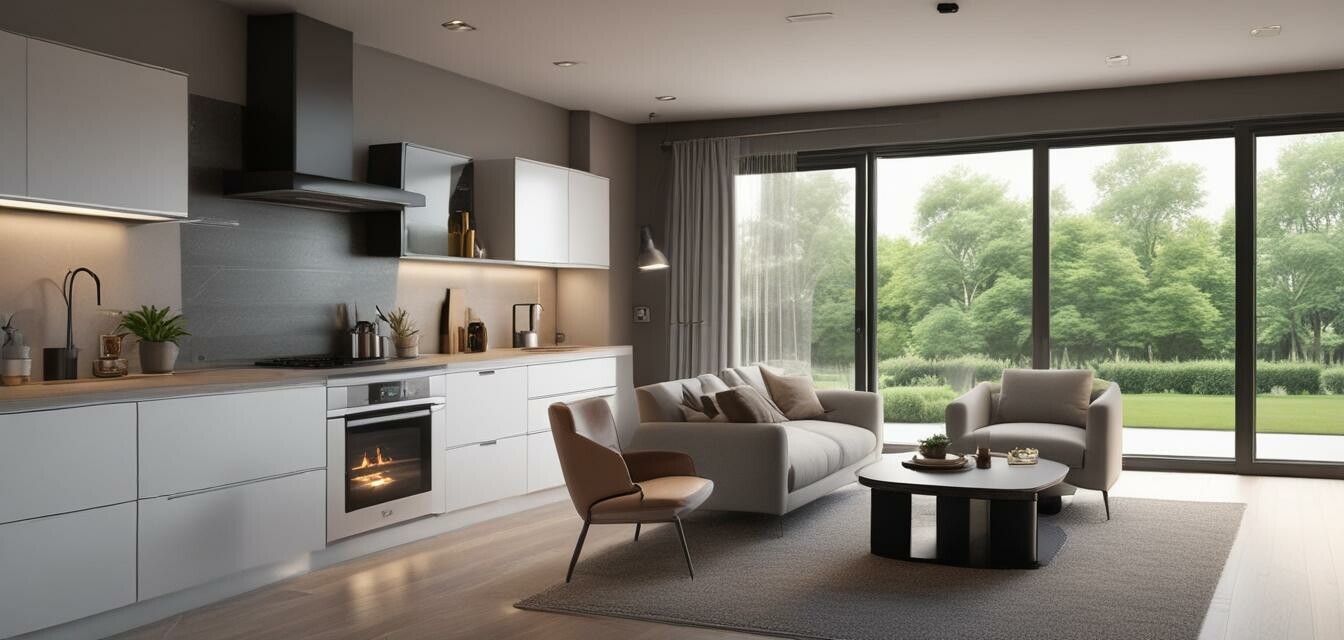
How Smart Security is Evolving for Rental Properties
Key Takeaways
- Smart security technology adapts to meet the needs of renters.
- Tenant-friendly solutions enhance user experience and accessibility.
- Landlords can manage properties effectively with smart tech integration.
- Increased demand for privacy and security solutions in rental living.
As more people turn to rental properties as their primary homes, the demand for innovative security solutions tailored for these living spaces is rising. Smart home security technology is evolving to meet the unique needs of renters and landlords alike. In this article, we will discuss how smart security systems are adapting, the dual benefits for tenants and property owners, and explore some of the latest advancements in this rapidly changing landscape.
The unique needs of rental properties
Rental properties present specific challenges when it comes to security. Unlike homeowners, renters might not have permanent control over their living space, making it crucial to implement tenant-friendly security solutions. Here are some key aspects:
- Temporary installations: Solutions must be easy to install and remove without damaging the property.
- Ownership concerns: Renters often do not own the property, which affects their decision in choosing security devices.
- Privacy: Security solutions must not infringe on tenants' privacy.
Tenant-friendly solutions
Smart security has advanced to offer features that cater to renters. Here are some vital components of tenant-friendly solutions:
| Feature | Description |
|---|---|
| Smart Locks | Allow for keyless entry and easy access management without the need for physical keys. |
| Mobile Monitoring | Provide tenants real-time updates about their home security through mobile apps. |
| Wireless Security Cameras | Offer flexible placement and can be easily moved if necessary. |
| Motion Sensors | Detect intrusions without invading the tenant's personal space. |
Benefits for landlords
Landlords can also leverage smart security technology to enhance property management. Here are some benefits:
- Remote access: Landlords can monitor properties remotely, granting access to maintenance personnel when needed.
- Real-time alerts: Get notified of any suspicious activity to ensure prompt action.
- Enhanced tenant satisfaction: Providing advanced security features can make a property more appealing to prospective tenants.
Innovative trends in smart security for rentals
With the continuous evolution of technology, new trends are emerging in smart security tailored for rental properties. Here are a few notable innovations:
- AI-Powered Monitoring: Improved security systems use AI algorithms to analyze activity patterns, enhancing safety and minimizing false alerts.
- Integration with Smart Home Systems: Many rental properties are adopting comprehensive smart home solutions for cohesive security and convenience.
- Cloud-Based Storage: Renters can store their security camera footage securely in the cloud for easy access without additional hardware.
- Personalized Alerts: Modern systems provide customized notifications based on user preferences.
Challenges of implementing smart security in rentals
While the benefits are clear, there are challenges associated with implementing smart security in rental properties:
- Lease restrictions: Some leasing agreements may limit the types of alterations tenants can make.
- Cost considerations: Not all renters may be willing or able to invest in additional security systems.
- Breach of privacy: Ensuring that security cameras or monitoring systems do not infringe on tenants' privacy is critical.
Pros
- Enhanced safety and peace of mind for renters.
- Landlords can efficiently manage property risks.
- Promotes tenant retention with modern features.
Cons
- Initial costs can be a barrier for some renters.
- Potential conflicts over privacy concerns.
- Compatibility issues with existing infrastructure.
The future outlook for smart security in rental properties
The future of smart security in rental properties looks promising as technology continues to advance. The integration of innovative features will likely make properties more secure while enhancing tenant experiences. With the increased focus on rental property security, we can expect:
- Greater collaboration between security companies and property managers.
- Further customer-driven innovations that address both tenant and landlord concerns.
- A surge in demand for flexible, portable security solutions in the rental market.
Stay informed about the latest news and trends
As the market for smart security systems continues to evolve, it’s essential to stay updated. For more insights, consider exploring our News & Trends section where we cover advancements in technology and best practices for smart home security.
Conclusion
Smart security technology is evolving to better serve the needs of rental properties, addressing both tenant and landlord concerns. By embracing tenant-friendly solutions and innovative trends, smart security is paving the way toward safer and more convenient living environments. As smart home technology continues to advance, it’s clear that the future holds exciting developments for both property owners and renters.
Tips for Homeowners and Renters
- Research smart security options that cater specifically to your rental situation.
- Communicate with landlords about the importance of security features in properties.
- Always prioritize privacy and data security when selecting smart security devices.
